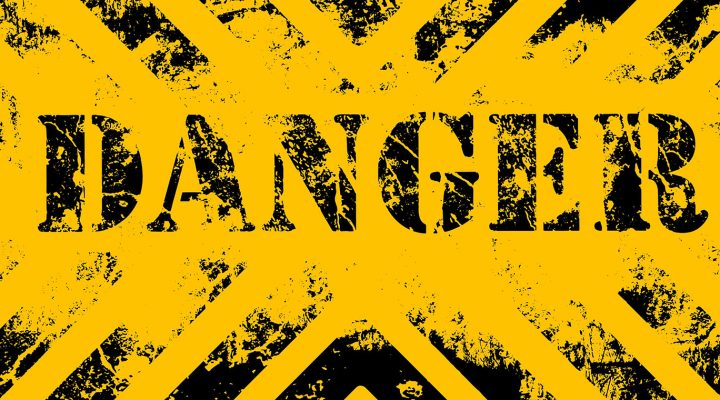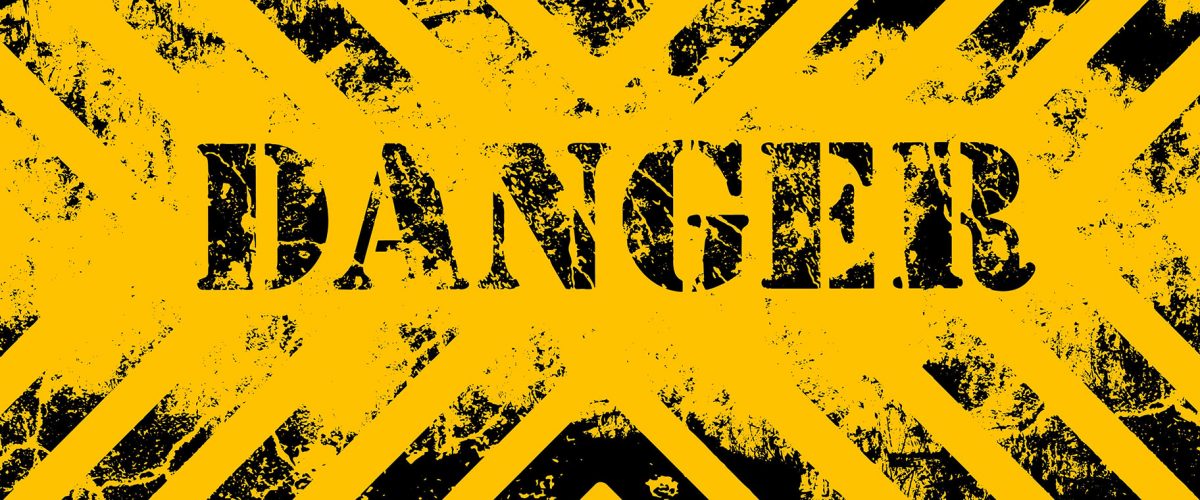In the year of our Lord (?) 2023, tune into any news platform right or left of center and you’ll hear that “American democracy is under threat.”
Rightwing media says the 91 charges in four indictments against former President Donald J. Trump reflect a leftwing, Democratic-controlled government effort to destroy his candidacy for the 2024 election and replace democracy with socialistic “wokeness.”
Leftwing media says Trump’s illegal actions in and out of office reflect an even larger Republican effort to replace democracy with authoritarian “white nationalism.”

Bill Leonard
Either way, in 2023 it is increasingly clear that American democracy is indeed in danger. Americans simply can’t agree on what that danger actually is. Those very divisions may be democracy’s greatest threat.
As if those political fissures are not enough, 2023 reflects a parallel, often intertwined, set of dangers and divisions within religious, specifically Christian communities, institutions and individuals. In short, something of the Christian gospel is in danger in the land of the free and the home of the religiously unaffiliated “nones.”
Consider these recent developments:
A CBS News/YouGov survey, released Aug. 20, suggests 71% of “Trump voters” believe what he tells them is the truth. And 63% believe the truth articulated by family and friends; while 56% trust the reporting of “conservative media.” Yet only 42% affirm the truth as offered by “religious leaders.”
71% of “Trump voters” believe what he tells them is the truth.
Think about it. This survey, involving 2,061 participants, suggests certain Americans trust Donald Trump, family/friends and conservative media more than they trust religious leaders, a revered group whose trust level is below 50%. (And that’s among a political populace that remains an evangelical mainstay.)
An Aug. 23 New York Times editorial by Nicholas Kristof cites Jim Davis and Michael Graham, authors of a new study titled “The Great Dechurching,” who write: “We are currently experiencing the largest and fastest religious shift in the history of our country.” Assisted by sociologist and Baptist pastor Ryan Burge, Davis and Graham observe that during the last 25 years almost 40 million American adults who once attended church have now dropped out, concluding, “More people have left the church in the last 25 years than all the new people who became Christians from the First Great Awakening, Second Great Awakening and Billy Graham crusades combined.”
Kristof also references Christianity Today Editor-in-Chief Russell Moore’s new book, Losing Our Religion, in which the former Southern Baptist leader asserts, “American Christianity is in crisis,” noting, “The church is a scandal in all the worst ways.”
Kristof adds that Moore believes “the reason people leave churches is not that they lose their belief in God so much as that they lose confidence in religious leaders and in the church’s moral leadership.” He adds that while Moore “thinks faith can still recover; I’m not so sure.”
“More people have left the church in the last 25 years than all the new people who became Christians from the First Great Awakening, Second Great Awakening and Billy Graham crusades combined.”
I’m not so sure either, and am struck by the number of self-identified evangelical leaders who are expressing similar concerns.
Last March, I was privileged to give the second annual Whitten Lecture at Baylor University with a topic titled, “Fundamentalizing Faith, Co-opting Culture: An Evangelical Enigma,” to be published this fall in Perspectives in Religious Studies.
The lecture begins with a quote from evangelical writer Peter Wehner’s 2021 Atlantic article, “The Evangelical Church is Breaking Apart,” calling American Christians to “reclaim Jesus from his church,” because “the aggressive, disruptive and unforgiving mindset that characterizes so much of our politics has found a home in many American churches.” He contends: “When the Christian faith is politicized, churches become repositories not of grace but of grievances, places where tribal identities are reinforced, where fears are nurtured, and where aggression and nastiness are sacralized. The result is not only wounding the nation; it’s having a devastating impact on the Christian faith.”
I recently cited Wehner’s words in this space but repeat them in light of an Aug. 24 New York Times editorial by David French, another prominent evangelical, titled “Political Christianity Has Claws.”
French writes: “Simply put, America is increasingly beset by a version of cultural and political Christianity that bears little resemblance to the faith as described in the Bible. It seems as if there’s an almost mathematical equation at work — when you combine theology and ideology but subtract virtue, you’ve created a formula for viciousness and strife. Raise the stakes to an existential or eternal level, remove the restraints of kindness and self-control, and watch the worst of humanity emerge.”
“When you combine theology and ideology but subtract virtue, you’ve created a formula for viciousness and strife.”
French illustrates that assertion with the Aug. 18 shooting of California store owner Laura Carleton, 66, by Travis Ikeguchi, 27, apparently for the continued display of a Pride flag outside her Ceder Glen, Calif., store. The flag had been torn down and replaced several times before the shooting. French notes that while Ikeguchi’s anti-LGBTQ online postings were “chilling,” there also were posts affirming the need to call on “the name of Jesus” in confronting life’s difficulties.
French comments: “It was chilling to me in part because it wasn’t substantially different from the sentiments I see and hear all the time from rightwing Christians in the age of Trump.”
French contends: “Moments of political conflict such as this one should cause the church to blaze forth with countercultural radiance — a soothing balm in a sea of strife. But the dominant tone of contemporary American political Christianity is close to the opposite. It’s angry. It’s punitive. In many ways it positively delights in strife.” He adds, “The Christianity it embodies isn’t so much Christianity at all, but rather a religiously flavored authoritarianism that … embodies the logic of religious war.”
In Jesus and John Wayne, yet another evangelical, Calvin University professor Kristin Kobes Du Mez, cuts to the gospel chase, asking, “When evangelicals define themselves in terms of Christ’s atonement or as disciples of a risen Christ, what sort of Jesus are they imagining? Is their savior a conquering warrior, a man’s man who takes no prisoners and wages holy war? Or is he a sacrificial lamb who offers himself up for the restoration of all things? How one answers these questions will determine what it looks like to follow Jesus.”
When dissent over doctrines turns to demonizing “heretics,” it’s time to determine what it looks like to follow Jesus.
When, as Russell Moore reports, Christians call the Sermon on the Mount a collection of “liberal talking points,” it’s time to determine what it looks like to follow Jesus.
When a major Baptist-related university requests and receives government permission to ignore complaints from LGBTQ students regarding harassment and bullying, it’s time to determine what it looks like to follow Jesus.
When Christians conflate religious liberty with Christian nationalism, it’s time to determine what it looks like to follow Jesus.
When the word “evangelical” is defined by politics more than the gospel’s good news, it’s time to determine what it looks like to follow Jesus.
Amid these times of gospel danger, I find myself continually returning to the words of Roger Williams, who challenged the political gospel of his day. In his 1643 book, Key to the Language of America, a primer of the languages of the Native Americans with whom he lived, worked and, yes, identified. Williams wrote to his Christian nationalist times and ours:
Boast not proud English, of thy birth and blood,
Thy brother Indian is by birth as Good.
Of one blood God made Him, and Thee and All,
As wise, as faire, as strong, as personall.
By nature wrath’s his portion, thine no more
Till Grace his soule and thine in Christ restore
Make sure thy second birth, else thou shalt see,
Heaven ope to Indians wild, but shut to thee.
Bill Leonard is founding dean and the James and Marilyn Dunn professor of Baptist studies and church history emeritus at Wake Forest University School of Divinity in Winston-Salem, N.C. He is the author or editor of 25 books. A native Texan, he lives in Winston-Salem with his wife, Candyce, and their daughter, Stephanie.
Related articles:
Matter-of-fact statements about Scripture aren’t always the gospel truth | Opinion by Jordan Conley
Frederick Buechner, Maya Angelou and Helen Lewis: Telling the truth | Opinion by Bill Leonard
The fake out: Why it matters that some Christians are embracing fake news | Opinion by Mark Wingfield


